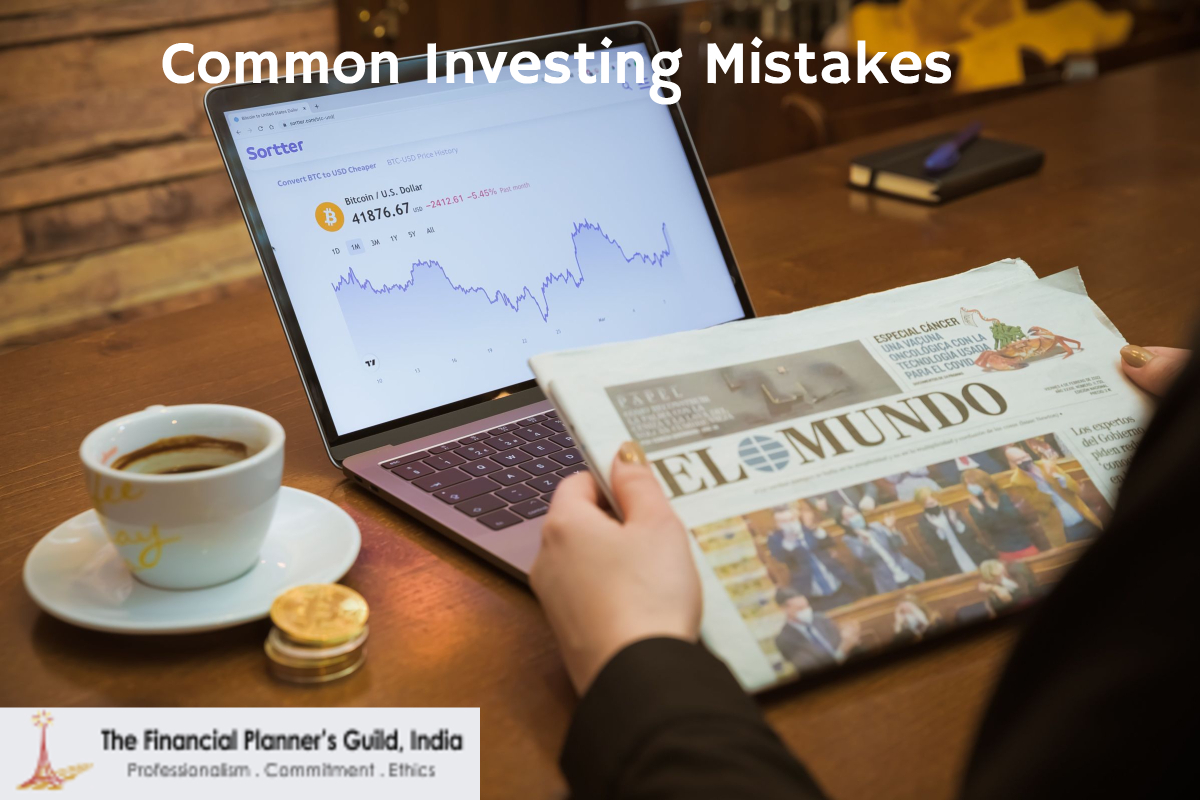
If you haven’t already read the first in the series on common investing mistakes, then please do so now by clicking here. Here is the second part of the series.
1. Over Monitoring Portfolio & Making Emotional Decisions
Some investors constantly check progress of their portfolio, logging in several times a day. Market is quite volatile in the short-term and constantly checking your account can lead to emotion-based decisions, both good and bad. Having these swings could lead you to make brash decisions, like selling into a downturn and then buying when the market is on fire, which is exactly the opposite of what should be done. Investing is a marathon, not a sprint, and it is important to take a long-term view.
2. Looking for a Magic Financial Product
Prosperity is all about utilizing the most powerful financial strategies, not the financial products, to multiply your wealth. If there were a ‘magic financial product’ out there, everyone would have it. Financial success is a process, not a product. You might come across many advertisements and emails attracting you to earn lots of money the easy way. Beware of such marketing frauds in the guise of pyramid schemes, ponzi schemes etc. Also, exotic investments like options and futures are highly complex and can be risky if you are a novice investor. The commercials might make this magic product seem like the best way to make fast money, but it’s a commercial and that’s precisely what it’s meant to do.
3. Staying Out of the Market for Long & Turning off Your Buying during a Downturn
Some of the world’s most successful investors made their fortunes by buying when everyone else was selling. But that’s not easy to do. The market can be crazy at times and all indices might be in red for long. By staying out – and pretending you knew when to come back in – you might miss plenty of profit opportunities. The ‘all in or all out’ approach will deprive you of profits and you just can’t know where they will come from. Creating a plan such as rupee-cost averaging and sticking with it under all market conditions is the best way to maximize your returns. Human nature makes it difficult for the average investor to stick to an investment strategy unaffected by emotion. Sometimes it’s fear; sometimes it’s pure greed. Either way, allowing emotions to affect your investing decisions is certain to damage your financial future.
4. Mismanaging Risk
Risks are inherent in investing – you need to be comfortable taking them. Some people want to take too much risk, while others want no risk at all. Neither is a good option for your financial future. If you take on too much risk, you may wipe out all the gains you worked so hard to build. However, if you don’t take on any risk, inflation will eat into your kitty lowering your purchasing power. So, find a common ground on risk and see what risks are relevant to you or your portfolio? If you are a 30-year-old saving for retirement, volatility isn’t (or shouldn’t be) a meaningful risk. On the other hand, inflation – which erodes any long-term portfolio – is a significant risk.

5. Trying to Time the Market
Studies have shown evidence that timing the market doesn’t work. However, every year thousands of people try to time the market only to end up disappointed. The problem is that volatility is now the rule rather than the exception and it’s almost impossible to predict the future. Instead of trying to beat the market, set up a sensible portfolio asset allocation and stick to it. Use rupee-cost-averaging by adding money to your investments whenever you can.
6. Failure to Book Losses or Earning Profits
Many investors buy a stock or mutual fund and never think about it again. Sell your bad performing investments and use the capital loss in a year you have high income to lower your income taxes. Go in with a plan for each investment. Know at what price or under what circumstance you want to sell it. Take your gains according to your plan – nothing rises forever. You may lose out on a little bit of money, but you may well avoid a big loss right before the stock dives. Waiting for stocks to hit the ‘bottom’ before you buy or hit the ‘top’ before you sell has long since proven to be a loser’s game for investors. Select the stocks or mutual funds that you want to buy only on the basis of sound fundamentals.
7. Not Having Appropriate Asset Allocation
If there is one point that virtually all financial planners agree on, it’s the critical need for you to maintain an asset allocation suitable to your personal circumstances. Asset allocation refers to the process of dividing your investable assets among stocks, bonds and cash. For example, if your retirement is years away, most experts recommend relatively heavy investments in equities (60 percent or more of your total portfolio). However, if your time horizon is less than three years stay in fixed investments like CDs, short-term bonds and money markets. Your asset allocation should accomplish your goals while addressing relevant risks.
Up Ahead Common Investing Mistakes – III
FPG India ©2024. All Rights Reserved.
Designed & Developed by W3M Technoz
Comments are closed.